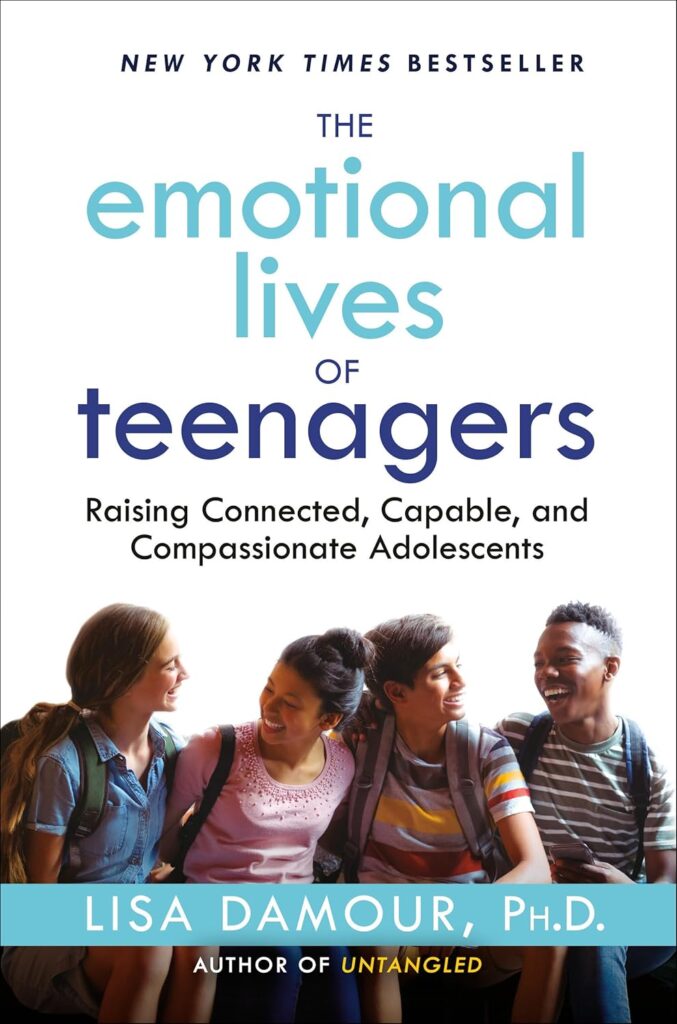
Growing up, I remember my parents’ favorite response to me was, “Just because someone jumped off the Brooklyn Bridge doesn’t mean you have to do it too.”
It used to infuriate me.
My dad, specifically, used it all the time. When I did something dumb. When I blamed my behavior on my friends. But especially when I claimed that all my friends were allowed to do something when I wasn’t.
That used to happen a lot growing up in my more conservative house. My parents often said no.
No to extending my curfew. No to sleepovers. No to concerts. And even no to some of my friendships.
Sometimes it made sense, and I went along with it. Sometimes it made me very good at sneaking around behind their backs.
Related: I’m “That” Mom to My Teens, And I’m Not Sorry
Now that I have teens of my own, I find saying no can be a lonely place.
Being the “no” parent is lonely. It is hard. It makes every relationship—with your child, with their friends, with your friends—more difficult.
I know there are people out there who find saying no pretty simple. I get that, and I admire those parents who feel resolute in their decisions.
I also believe our kids need boundaries and limits. But I often tend to live in the gray area.
I know from my own experience as wild teen that it is a delicate balancing act. Say no too much, and your kid may rebel and learn that sneaking around, lying, and circumventing the rules is the way to have fun. Don’t say it enough, and your teen can put themselves in some dangerous situations.
How to find common ground with your teen
When my daughter was in sixth grade, I saw a post in a local Facebook group.
“Are there any other middle school moms out there whose kids’ don’t have an IG account? My daughter doesn’t believe me when I tell her she is not the only one.”
As her daughter and mine attend the same school, I recognized the name, so I responded: “Me! We don’t have social media for our kids either.”
She sent me a private message a few minutes later. “I seriously thought we might be the only ones left. I’m not ready for her to have it yet, but then I thought maybe I was the only one and being overprotective. Knowing that there’s one other parent out there made me feel so much better.”
It’s not the first time I’ve heard this. It’s lonely when you are the parent saying no in a world that always seems to say yes.
It’s not only about social media. It might be about curfews or sleepovers or concerts. It might be letting them go into a city by themselves or driving a few hours to an event or spending a lot of time with a significant other.
Related: No One Talks About How Incredibly Lonely It Is Raising Our Teenagers
And being the only parent to say no—regardless of how right you are—can come with consequences for big kid.
A friend of a Junior in high school called me during prom season to say she was the only parent out of 20 kids who said her daughter couldn’t attend a co-ed sleep over, so the group dropped her off early to not disrupt their plans. Another friend said she was ostracized for not allowing her 16-year-old son to go to Mexico for spring break without any adults. And another was frozen out because she called parents when she found out they were drinking in her basement.
It’s a delicate balancing act, raising big kids. You want them to be independent, yet one mistake can change the trajectory of their lives. You want your teen to be accepted by their peers, but not at the expense of risking safety. You want them to become trustworthy, but sometimes you know they can’t yet be trusted.
So we say no.
Teens cannot make smart decisions on a regular basis as their adolescent brains are still developing. Friendships—which are so important to teenagers—can easily outweigh their need to be responsible or safe. They are thrill seekers. They like to push limits. They want to feel grown up.
But more than that, they’re not stupid. As much as we want to believe our kids tell us everything, they don’t come home and inform us when they’ve engaged in risky behavior.
So, sometimes we say no because we don’t get a replacement if something happens to our kids.
Being a parent that says no comes with consequences
I’ve tried to find a balance when it comes to raising my teens. I’ve learned not to have blanket rules, and I will listen to my teens when they come to me with a request, considering each one on its own merit.
For example, I did not let my kids attend a co-ed sleepover after homecoming in 9th grade, but their senior year, just a few months before they left for college, I allowed it knowing that they had proved they could be trustworthy (and knowing the parents helped.)
I’ve also learned to be flexible. When one of my teens wanted to attend a concern in a major city, we dropped them off and another parent picked them up to address our main concerns of them driving in the city. They didn’t love it, but they were willing to compromise as opposed to not going at all.
We’ve also extended curfews or rules depending upon the plans.
I’ve also learned that sometimes my kids can talk themselves out of something if I give them the chance to present it to me, the pros and the cons. They get caught up in what everyone else is doing, too, so I try to refrain from saying no until I hear them out.
Teens need opportunities to become trustworthy
We want our kids to be happy. It’s nice when they fit in. And sometimes, we just don’t want a knock-down, drag-out fight about every ask.
But there are times when saying no is essential, even when—especially when—every other parent is saying yes.
Sometimes they are even relieved when we say no, giving them an out for something they may not have been ready to do anyway.
If you’re sometimes a “no” parent, know you’re not alone. It’s just that no one is posting photos about that time they said “no” to their kids.
Keep parenting from your gut. Your kids will turn out alright.
And if not, we always can tell them about the Brooklyn Bridge.
Looking for a good book to help you understand what today’s teens are facing?
We love this book by Lisa Damour:The Emotional Lives of Teenagers: Raising Connected, Capable, and Compassionate Adolescents

Are you in the thick of raising your tweens and teens? You may like this book by Whitney Fleming, the co-owner of Parenting Teens & Tweens: Loving Hard When They’re Hard to Love: Essays about Raising Teens in Today’s Complex, Chaotic World.

Raising teens is hard, but you don’t have to do it alone. Here are some other posts parents found helpful:
Help! I’m Raising Teenagers and My Village Disappeared
No One Talks About How Incredibly Lonely It Is Raising Our Teenagers
Everything You Need to Know About Raising Teens in 50 Simple Steps
*This post may contain affiliate links where we earn a small commission for products purchased from our site.





It’s a delicate balancing act, raising big kids – AMEN! There are so many helpful resources here and I am thrilled I found this blog. As a mother of a teen boy I am trying very hard to be present in his life even though he is very much pushing back and often shutting down. I think I do need to step back from giving advice all the time to making him feel more accepted and know how proud I am of him. This post actually reminded me of a book I gave to him recently called, “Mentors and Tormentors, on the Journey to Self-Respect” by Tim Jones (consider it an instruction manual for tweens/teens written as an entertaining fiction novel). It encourages teens to take control of their lives and gives some really helpful tips and lessons throughout. The main character, Wendall, encounters 15 characters (both good and bad) that range from a bartender to his sweet next-door neighbor – and everyone in between. I read this book first before giving it to my son and I thought it was funny, clever, relatable and a really smart way to teach teens about depression, bullying, self-respect, etc. Definitely recommend it to parents and I think it’s a very valuable resource (and a good discussion starter too). Here is the website for anyone interested:
https://mentorsandtormentors.com/
Thanks again!